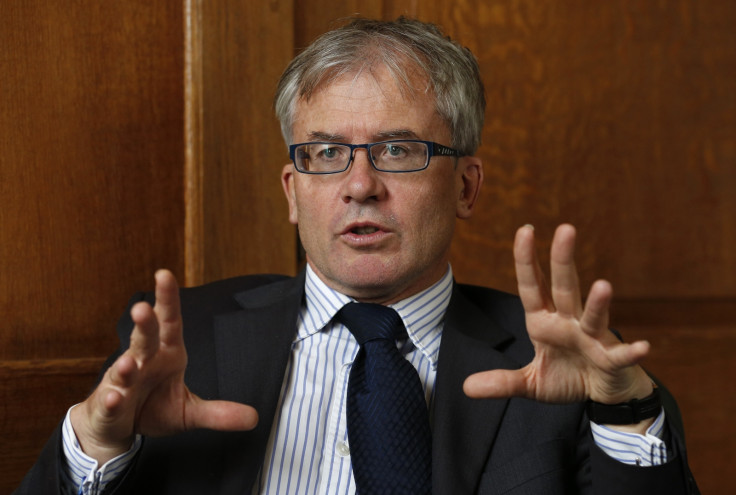Brexit unlikely to cause severe shock to UK house prices, says ex-Bank of England policymaker

House prices are unlikely to plummet if Britain votes to leave the European Union (EU), a former rate-setter at the Bank of England has stated.
Professor David Miles, who sat on the Monetary Policy Committee between 2009 and 2015, cast doubt on a Treasury prediction that house prices would fall by between 10% and 18% in the event of a Brexit after the 23 June referendum.
The Treasury research, touted by Chancellor George Osborne as he campaigns for Britain to remain in the 28-member state EU, assumes GDP would be between 3.6% and 6% lower over two years if there is an economic shock from a vote to leave.
"I think one needs to be a bit sceptical about the argument we sometimes hear that prices will fall a lot if there's a no vote," Miles, who now works at Imperial College Business School after leaving the central bank in August 2015, told IBTimes UK.
Miles said the lower GDP anticipated after a Brexit is "not a small number, but it's much, much smaller than the effect of the financial crisis back in 2008. Where we are now in the UK is a level of GDP that's probably 15-17% lower than you might have thought on the eve of the financial crisis".
"So that's an enormous hit, and yet house prices, having fallen initially, are back where they were and in London probably higher than they were before the financial crisis. That's with a 17% fall in GDP. The idea that a 3% fall in GDP, if that's what Brexit brings, must cause house prices to fall enormously is not a terribly compelling story," Miles argued.
There are concerns among some in the property market that house prices in the UK, and in particular London, are now so overvalued that they have entered bubble territory and will soon crash. In 2006, while he was chief UK economist at the investment bank Morgan Stanley, Miles predicted a sharp slowdown in house prices the following year. In 2007, the housing market crashed, only recovering again in 2014.
But Miles said he does not see the same dangers in the market as before. "You've had three things happening, all of which pushed partly in the same direction of making the sustainable or equilibrium level of house prices higher than it was back then," Miles explained.
"So despite the fact that relative to people's incomes prices are even higher, particularly in the south east of England, than they were back then, I'm not so convinced that there's an enormous vulnerability and that we should expect a very big fall in house prices. It's partly a combination of population, a level of housebuilding far lower than the population rise would seem to warrant, and quite likely a continuation for some time yet of extremely low interest rates."
Moreover, in 2013, the Mortgage Market Review (MMR) by financial regulators introduced much stricter affordability tests for borrowers, who must now demonstrate that they can cope with their repayments if interest rates rose far higher than expectations.
When the Bank of England hikes its base rate from the record-low 0.5%, where it has sat since 2009 to stimulate the economy, those who would be most vulnerable are people who have just taken on a mortgage to buy a house just as prices are at their highest.
But the MMR puts new borrowers at a lower risk from an interest rates shock than in the past. "I would be reassured to some extent, partly as a result of the Mortgage Market Review, that affordability problems probably will not get terribly serious in the UK over the next several years," Miles said.
In London, he noted that the ratio of house prices to people's incomes on average "is extraordinarily high, probably higher than it has ever been", having risen over the past two decades from around six times to ten. But the ongoing housing shortage is more acute in London than elsewhere, with new homes construction running at around half the level needed to meet demand, underpinning prices.
"You can look at that number and say this is not sustainable. I'm not quite so sure. Obviously, part of what makes prices hold up there is extremely low interest rates, and that looks like it's going to last a lot longer than people thought," Miles said.
"I'm not so convinced that simply looking at those very high prices relative to earnings means prices are clearly unsustainable in London. And if you look outside London, that ratio of prices to people's earnings is very much lower than in London. So the idea that prices are clearly unsustainable and have to fall by a big number, I don't think the case for that is at all overpowering."
According to the Office for National Statistics (ONS), the average UK house price was £292,000 in February 2016, up 42% since 2006. In London, the average price hit £552,000 after rising 80% in a decade.
© Copyright IBTimes 2025. All rights reserved.






















